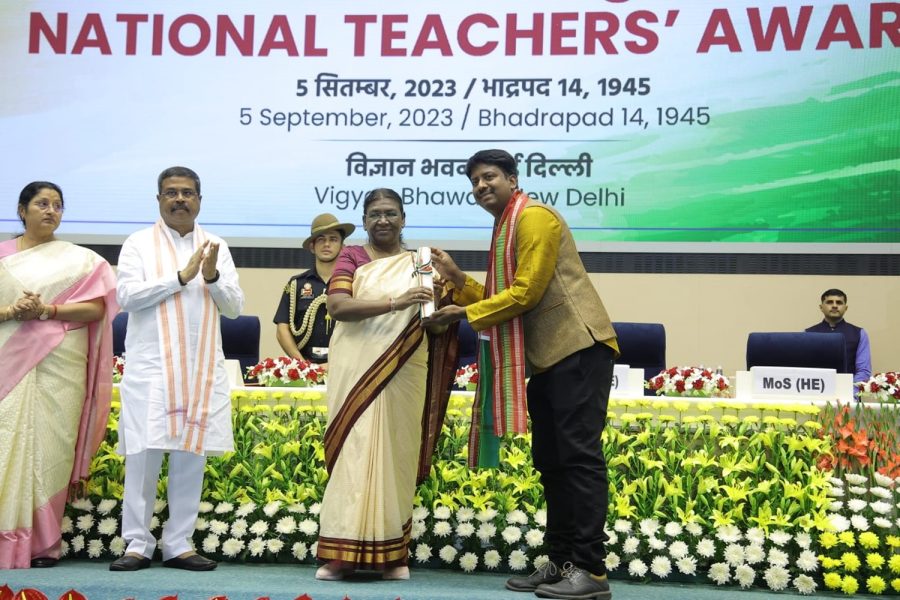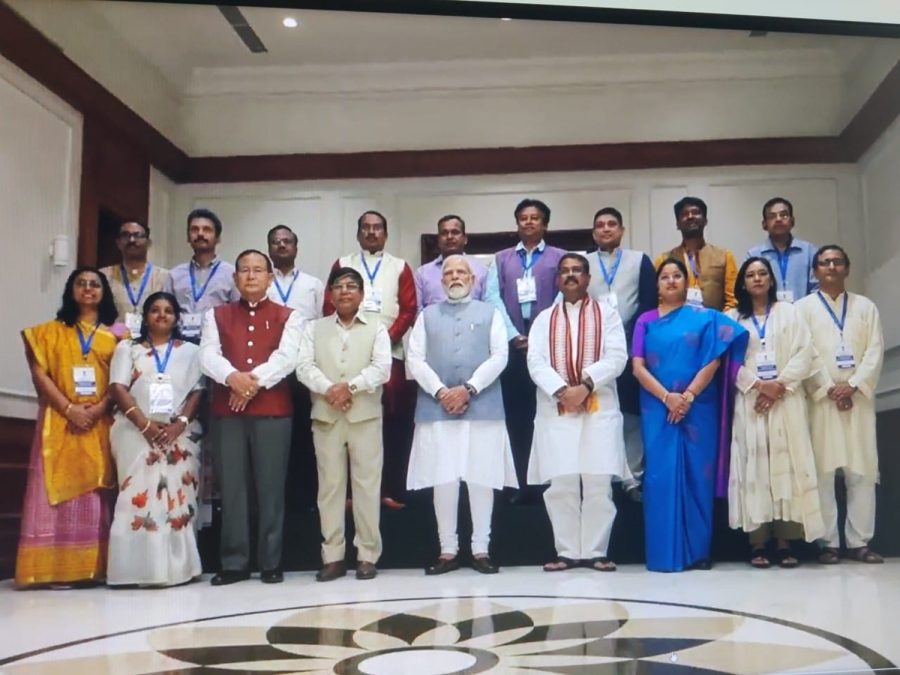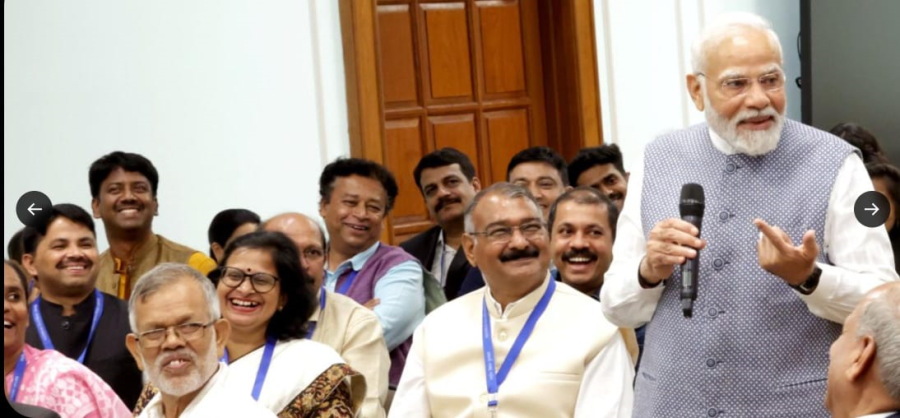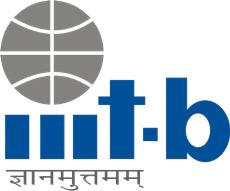
Prof. Dinesh Babu Jayagopi, at IIIT-Bangalore recently received the distinguished National Teachers Award 2023 from the President of India, marking a pinnacle in a career dedicated to transforming education. In an exclusive interview, with Naviiina, shares insights into the initial emotions of this prestigious accolade, the evolution of his teaching journey and the unique methodologies that set his contributions apart. From pioneering applied mathematics to leveraging technology’s role in education, he sheds light on teaching philosophies and offers valuable advice for aspiring educators. Join us in delving into the inspiring world of Prof. Dinesh, where teaching goes go beyond the classroom and becomes a lifelong commitment to shaping minds and making a meaningful impact on education.

- Your initial reactions and emotions upon learning that you were awarded the National Teachers 2023 honor by the President of India?
Unbelievable, for couple of days I was levitating, and preparing for the travel to Delhi along with my wife. Before the announcement, the selection interview had gone really well and I told my wife and mother that I did well. Both of them said I will get it. Generally, women seem to know what is coming!! After the visit and the experience at Delhi, still I am levitating, what an honor.

- What inspired you to pursue a career in teaching, and how has your journey evolved over the years?
I took up full-time teaching after part-time teaching in a school, as a volunteer with Dream School Foundation, soon after I finished Masters at IISc and working with Mercedes Benz Research. There was satisfaction at the end of the day if students learn with your help. I also realised there is a lot technology can contribute in school and university education.
- Could you highlight some of the key principles or philosophies that guide your approach to teaching?
Not all students are good at math, they have difficulties following “only” math. Math in the context of applications, i.e. applied math can be easily motivated and taught using examples, coding and projects. Many a times, we need to motivate “why” Math is needed and how it makes our life simpler. One theory is worth thousands of experiments. We need to convince students that is indeed the case. With this generation, once we convince they follow.
- In receiving such a prestigious award, what do you believe sets your teaching methods and contributions apart?
Teaching in an applied fashion, building concepts from simple to complex, engaging the students through constant interactions, taking regular feedback for large classes are some of the successful ideas.
- How do you foster a positive and engaging learning environment for your students?
Keeping the classes accessible to most students helps them to follow the classes, through constant interaction it is possible to get insight into how they think, and suggesting them to think in a first-principle-approach and then lead up to complex concepts.
- Can you share a memorable teaching moment or a particular student success story that stands out in your mind?
While preparing to teach Predictive Analytics course as part of the Continuing Education program with UpGrad, I was advised to teach such that the students don’t get doubts, as they will be watching online and they cannot ask doubts, till say the “live” session. We started with very little prerequisites and built several illustrations to convey our intuition and a little math, so that the classes are accessible to a large set of students. We added coding exercises to make the learning concrete. Looking back, this is an interesting model even for physical classes, though it requires tremendous effort.
- As a recognized figure in education, what role do you think technology plays in shaping the future of teaching and learning?
Technology can easily play the role of teaching assistants. While teachers can focus on imparting critical thinking and philosophy, technology can impart training and assessment on skills. Technology can generate new questions for practice, till a concept is mastered. We will soon start to see language teaching avatars that are competent, engaging and socially intelligent.
- How do you stay current with advancements in your field, and how do you integrate new knowledge into your teaching?
Reading at least 2-3 papers every day, checking out scholar and LinkedIn updates for recent publications are some ways to keep oneself abreast with tech progress. Particularly AI research is progressing at a tremendous speed. Our advanced courses constantly take into account the recent research trends into our teaching.
- What advice do you have for aspiring educators who look up to your achievements and wish to make a meaningful impact in the field of education?
We need more and more good teachers. If I may say so, I genuinely think IT has stolen several potential teachers, who could have contributed to school and college education. Teaching gives tremendous satisfaction. Research keeps our knowledge constantly updated. India has several problems, and we need problem-solving and entrepreneurial teachers and researchers. Hopefully, more high-quality private universities will be started in India, and will attract good teaching talent in the coming decade. The sign of a good university is the quality of teacher-researchers it is able to attract.
- Beyond the classroom, are there any projects, research, or initiatives that you are currently involved in or planning to undertake?
We have built a UPSC mock-interviewing platform called Margadarshi – with VR and AI, collaborating with India-for-IAS academy. We have contributed to an Indian Sign Language Synthesis project, funded by Mphasis CSR. We are also collaborating with St Johns on Autism detection, funded by Machine Intelligence and Robotics (MINRO) Center. We have collaborations with University of Oulu and Toronto on Human activity understanding.
- How do you balance your teaching responsibilities with other professional commitments and personal life?
So far, family has sacrificed, lot of time went into building the Multimodal Perception lab. Coffee has helped a lot to keep myself productive in office. Time to increase time on health and family.
- How do you approach challenges or setbacks in your teaching career, and what lessons have you learned from overcoming them?
Sometimes in spite of our best efforts, we are not able to satisfy the students. Constantly engaging and interacting with them, plus adapting oneself seems to be the only way. We need to keep on inventing new tricks, as the attention span of students seems to be reducing day-by-day. This will be a life long struggle that we teachers (and parents) cannot escape.


